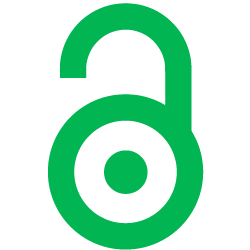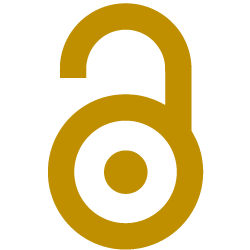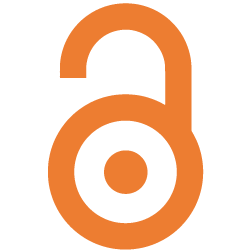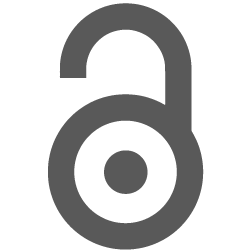Open Science (Also referred to as Open Research) and Open Access are terms being thrown around quite a bit these days in the scholarly publishing industry. However, it has become very clear that with the rise of many new dynamics surrounding the open sharing of content, many do not fully understand what the foundation of Open Science is and how key movements such as Open Access can benefit them. IGI Global provides many different Open Access programs but realizes that not everyone completely understands just how Open Access publishing operates. So, lets first start with defining what these terms mean:
Open Science or Open Research is a broad term encompassing the conduction and dissemination of research in a more transparent and collaborative way. Proponents of Open Science include the call for improvements to data sharing, ensuring that it is readily available through data repositories, as supplements to published research, and numerous other places.
Open Science includes Open Access, which refers to making peer-reviewed scholarly research (journal articles, book chapters, full books, etc.) and literature freely available online without any paywalls or login restrictions.
In traditional publishing models, publishers will publish manuscripts under standard access meaning that for the research community to gain access to the content they would have to purchase the publication or subscribe to it to gain access. Because the work must be sold by the publisher for them to ensure they are able to cover the overhead costs to produce the work (staffing, editorial systems/technology tools, typesetting, hosting, distribution, and promotions, etc.), the publisher retains the copyright. Under Open Access the authors or editors will pay an Open Access Processing Charge (Article Processing Charge (APC), Chapter Processing Charge (CPC), or Book Processing Charge (BPC)) to retain the copyright for the work (publish it under Creative Commons licensing) and they are able to then distribute the published work wherever they wish, and it can be easily accessed by the research community without any paywalls or login restrictions.
Copyrighted content generally has a lot of limitations as to where it can be posted legally, whereas Open Access content can be posted to any repository, website, platform, etc. In the era of citation metrics, Open Access has held the key to ensuring that researchers are able to get their work more openly discoverable all over the world, supporting with higher download rates, citation metrics, and impact.
Open Access should not be confused with predatory behavior such as "pay to play" or "pay to publish" models. If a publisher is ethically following the proper principles of Open Access, they will ensure that Open Access Processing Charges are not requested from authors until after the peer review has been conducted and the work has been accepted. Predatory behavior would be if a publisher requests the fee upfront before the work has even gone through review and does not offer any refund if the work is rejected. Also, credible Open Access publishers will ensure that once the Open Access Processing Charge has been received that the work is promptly moved to final publication and distributed openly without any paywalls or login restrictions associated with accessing the content.
There are many different types of Open Access, and publishers will have a variety of options for researchers to choose from. The most common are generally, Hybrid, Gold, and Platinum Open Access:
 | Green Open Access | | Follows traditional publishing model but self-archiving by the authors to an institutional or subject repository is permitted. |
|  | Gold Open Access | | All articles published in the journal are freely accessible. |
|  | Hybrid Open Access | | Authors choose to publish via the traditional, subscription-based model or as an open access article. |
|  | Diamond/Platinum Open Access | | Follow Gold OA publishing model but have no APC. Typically requires external funding source. |
|
|
IGI Global currently publishes 175 Gold Open Access Journals, 1 Platinum Open Access Journal, as well as Hybrid, Gold, and Platinum Open Access Books across eleven subject areas. Here are some of the benefits of publishing under Open Access with IGI Global: - Increase Citation Rates & Indexing Potential
- Greater Notoriety for Authors’ and Editors’ Academic Institutions
- Greater Sharing Power and Discoverability for the Authors and Editors
- Copyright Returned to the Authors and Editors (Converted to CC Licensing)
- Content Becomes Free to Access by All Researchers Around the World
- Contents of the Unlocked Work Can Be Utilized in Future Publications and Teaching Materials
- Opportunity for Additional Research Collaborations
- Affordable Open Access Conversion Fees
- Institutions Funding Conversions Will Benefit From a Wide Range of Promotional Materials Highlighting the Funding Sponsorship
Open Access Processing Charges vary from publication to publication, at IGI Global the processing charges cover the following critical items:
High Visibility & Discoverability
OA content is freely available online upon publication with no embargo periods.
OA Licensing
OA content is published under Creative Commons licensing (specifically, CC BY 4.0) giving freedom to the authors and researchers worldwide to post and disseminate the content widely.
OA Compliance
IGI Global supports authors in meeting funder's OA policy requirements and OA mandates.
Online Hosting & Content Distribution
Content is distributed and hosted on websites, database platforms, and numerous discovery outlets worldwide.
Archiving
All of IGI Global's content is archived via the CLOCKSS and LOCKSS initiative.
Content Indexing & Abstracting
Content is submitted for consideration to prominent abstracts, directories, and indices.
Digital Tools, Systems, & Third-Party Software
Numerous technology innovations are used to support the manuscript management, peer review, and production processes.
Editorial Support & Services
Rigorous editorial processes are executed such as manuscript tracking, communications, editing, quality assurance checks, etc.
Formatting, Layout, & Typesetting
In-house production of the work including the distribution of proofs to authors.
Promotional Support & Activities
Includes metadata distribution, press releases, web content, ads, fliers, brochures, postcards, etc.
When are Open Access Processing Charges Collected?:
Article Processing Charges (APCs) and Chapter Processing Charges (CPCs) are not requested until
AFTER the article or chapter manuscript has gone through a double-blind peer review process and is accepted into its respective publication.
Authors of rejected manuscripts will not be expected to pay an APC or CPC. Book Processing Charges (BPCs) would not be requested until
AFTER the book proposal has been accepted, formally contracted, and has started accruing content (with the book still undergoing a full double-blind peer review process during development).
Interested in learning how to secure Open Access Funding? Find information here. Authors Are Even Able to Convert Their Previously Published Work to Open Access:
Even authors who previously published their work under the traditional publishing model (standard access) can consider converting their work to Open Access under
IGI Global's Retrospective Open Access Program. When a journal article, book chapter, or full book publication is converted to Open Access, the copyright returns to the authors of the manuscript under the CC BY 4.0 license, allowing the copyright of the work to remain solely with the authors and opens greater sharing capabilities for authors who wish to maximize the visibility of their published work.
Previously published journal articles, book chapters, and even full book publications can be converted to Open Access at a discounted rate.
While we have developed our own robust Open Access Program at IGI Global, there are numerous educational resources surrounding Open Access that we highly recommend reading:
About IGI Global
Founded in 1988 and headquartered in Hershey, Pennsylvania, USA with a subsidiary office (IGI Science and Technology, Ltd.) operating out of Beijing, China, IGI Global is a leading medium-sized independent international academic publisher of scholarly reference sources. They are committed to facilitating the discovery of pioneering scientific research that enhances and expands the body of knowledge available to the research community through traditional and open access publishing workflows. Working in close collaboration with more than 150,000+ expert researchers and professionals from leading institutions, IGI Global publishes quality peer-reviewed content across 350+ topics in 11 core subject areas, including business, computer science, education, engineering, healthcare, social sciences, and more. Learn more about IGI Global here.
Emma Baronak
(717) 533-8845 ext. 183
ebaronak@igi-global.com
www.igi-global.com